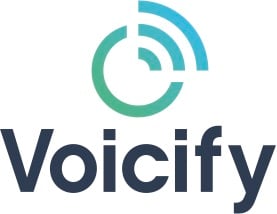.jpg)
Jon Arnold: Voice and AI in The Enterprise
.jpg?width=737&name=kevin-bhagat-TD0OOE8j8Jc-unsplash%20(2).jpg)
The door is wide open for AI in the enterprise. While voice has always been part of its inner workings, AI-enabled voice technology is still finding its way. The push for voice-first applications in business, however, is already picking up the pace. We have Cortana for executives, Alexa for business tasks, and all sorts of chatbots for HR, customer service, and even business analysis.
But who better to tell you more about the role of Voice and AI in the enterprise than Jon Arnold, Principal of J Arnold & Associates. As a renowned, independent research analyst and a thought leader on the business-level impact of communication technologies, Jon holds many of the answers execs want to know about Voice and AI.
During an email exchange with VOICE, he shared his valuable insight and gave us a glimpse into the future of AI-driven voice in the enterprise.
-
What fascinates you the most about the potential of AI and Voice in the enterprise?
Voice has always been—and remains—the best, most natural mode of real-time communication. Aside from workers engaging in-person, the PBX has been the hub of workplace communication for decades. That has changed with the advent of VoIP, where voice becomes a data application that goes beyond everyday telephony. As VoIP has evolved to become part of the collaboration landscape, the role of the desk phone has diminished, but voice remains as important as ever.
This sets the stage for AI, which has only recently become enterprise-ready for voice-based applications. To date, voice in the workplace has been person-to-person, but there’s a broader horizon now with AI. For a while now, I’ve been calling this the “New Voice,” where AI is enabling a new modality, namely person-to-machine, or machine-to-person communication. The possibilities are endless, and that makes the intersection of voice and AI so interesting.
-
As the go-to counsel for businesses adopting disruptive communication technologies such as AI, what are the most common reasons execs want to bring it into the enterprise?
The rationale for AI will vary based on who you talk to. Executives tend to take a top-down approach with new and potentially disruptive technologies. They usually don’t want something too disruptive since that entails risk—unless, of course, they are trying to change the status quo quickly at any cost. More likely, they’ll be looking at AI to bring new forms of automation to the workplace. There’s nothing wrong with that, as efficiencies can lead to improved agility, and that’s something all execs want these days.
However, AI is still more hype than reality, and unless execs are tech-savvy, they could easily view it as a silver bullet that will magically make everyone more productive and take costs out of the system. That’s the dream scenario for AI in the enterprise, and a lot of this can be driven by voice applications, but the reality is quite different. We’re still in the early stages here, and so far, most of these applications are just basic voice commands for executing simple tasks. AI needs to be more conversational for higher-order applications, and that’s not the norm yet.
-
Businesses can be hesitant to embrace new technologies, why do you think some are still dragging their feet with AI-driven Voice?
Most businesses are slow to embrace new technology, and with AI still being so nascent, the holdback is not hard to understand. If AI presented a clear ROI, businesses would quickly adopt it, but there are more unknowns than 'knowns' right now.
Voice is a great application for AI in the workplace, but practical use cases aren’t that obvious. A key reason is that our experiences with AI-driven voice are rooted in the consumer world, where the use is for search or casual queries about the weather, trivia, wayfinding, etc. These are not high-value applications in the workplace, and until clear use cases emerge, adoption will be slow. We’re seeing promising signs with VAs like Alexa being used in meeting rooms, but these applications just bring incremental efficiencies, rather than the transformational changes management is hoping for.
-
Even if adoption is slow, these technologies are here to stay and are rapidly evolving. What would you tell an executive to be most mindful of when evaluating AI-driven voice offerings for the enterprise?
The first thing is to set realistic expectations. AI may be evolving quickly, but real benefits will take some time to accrue. AI-driven voice capabilities are still pretty limited, and as we’ve seen with Google Duplex, first impressions can be impressive, but we’re a long way from these apps being truly conversational with humans. The key here is to understand that AI technologies are iterative—in particular, Machine Learning and Natural Language Understanding—they start from a small base, but will dramatically improve with usage. As data inputs are compiled, speech accuracy improves, along with predictive accuracy for expected outcomes. With a bit of patience, today’s simple applications will progress to handling complex tasks, and that’s where the AI payoff really happens.
Secondly, executives must strive to be on the right side of good versus evil when deploying any form of AI. Employees need to adopt it so the data sets can grow, but that will only happen if they view it as a tool to enhance their jobs rather than replace them. Related to that are the Big Brother implications that come from focusing solely on efficiency, control and cost reduction without regard for privacy or morale. That’s a much bigger topic, but I think you get the gist.
-
We're looking forward to hearing your thoughts during your upcoming panel "Voice and AI in Enterprise - Executive Briefing." Why is this a must-see session and what can attendees expect to walk away with?
For starters, attendees will hear from thought leaders and companies that are heavily-invested in AI-driven voice, especially AWS and Salesforce. They’ll be sharing best practices and candid insights about what’s working in this space along with what you need to watch out for. As a takeaway, attendees will gain a better sense of what AI is and is not, and hopefully a new way to think about the role of voice—particularly how AI can elevate its value to make workers more productive and enterprises more agile.
...
You can connect with Jon Arnold on Twitter and LinkedIn, but don't miss the chance to hear his wisdom in person at VOICE this July 23rd. Jon will be alongside the equally insightful Yingbo Zhou (Salesforce), Jason Ouimette (Noble Systems), and Collin Davis (AWS). That's a lot of knowledge on one panel.
The world's largest voice tech event is inching closer by the day. Attendees are getting their bags ready, speakers are polishing their slide decks, and we're buzzing to get the show started. Time is running out fast, but you can still snatch one of the very last tickets! Four full days of discovery, networking, and exciting experiences await.







.png)

